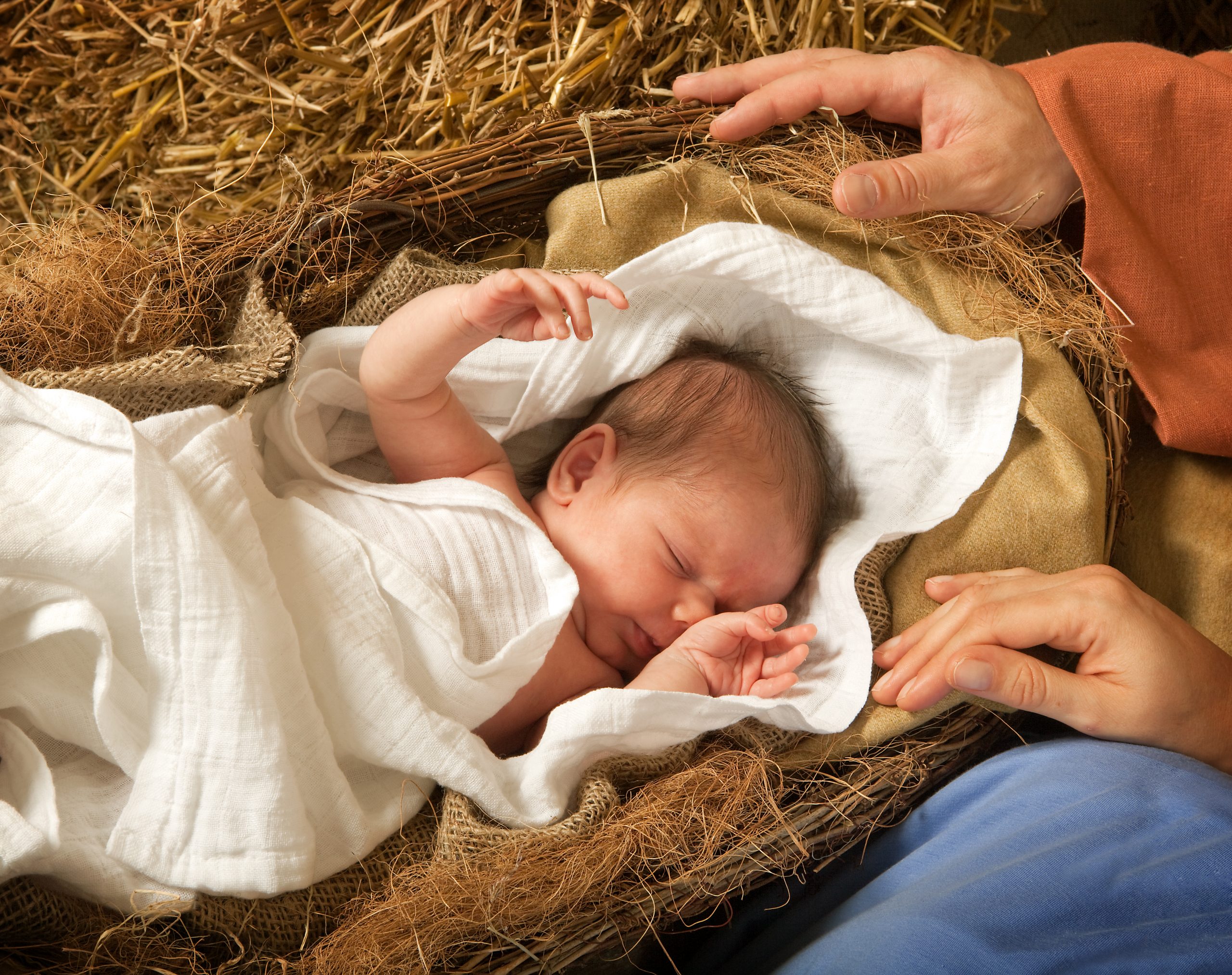
The Word Made Flesh: Human Dignity Made Manifest
December 13, 2023
In the grand tapestry of creation, the pinnacle of God’s goodness is embodied in humanity. This truth is deeply rooted in Scripture, where the creation of human beings is seen as the culmination of God’s material creation. The Catholic Church draws its teaching on the meaning of the human body from these sacred texts, affirming the goodness of the body and its significance in God’s plan. Central to this understanding is the profound mystery of the Incarnation, where Jesus, the Word made flesh, assumed a human nature to accomplish our salvation. As we prepare to celebrate His birth into mankind, let’s explore how Jesus’ incarnation exalts humanity and underpins the teachings found in the Theology of the Body.
The Incarnation, a Divine Mystery

The Council of Trent Article III reminds us that the Incarnation is a profound mystery, where the Son of God, remaining fully divine, assumed human flesh “in a manner transcending the order of nature.” This union of the divine and human natures in Jesus preserved the actions and properties of both, emphasizing the significance of the human body: “This single reflection, that He who is true and perfect God became man, supplies sufficient proof of the exalted dignity conferred on the human race by the divine bounty; since we may now glory that the Son of God is bone of our bone, and flesh of our flesh…” Through the Incarnation, Jesus reveals the depth of God’s love for humanity, as He humbled Himself “…taking on the form of a servant, being born in the likeness of men” (CCC 461). This divine act of becoming human demonstrates the inherent dignity and ineffable worth of every human person.
The Significance of the Human Body
The Catholic Church teaches that the human body is not merely a vessel but “a temple of the Holy Spirit” (1 Cor 6:19). This understanding is rooted in the belief that Jesus, the Son of God, was born as a real, flesh and blood human being. By assuming a human body, Jesus affirms the goodness of the body and its integral role in our salvation. The Baltimore Catechism No. 3, Lesson 7th, Q. 318 explains that “The Incarnation is the act of clothing with flesh. Thus, Our Lord clothed His divinity with a human body.” This profound truth highlights the unique and sacred nature of the human body, which is called to participate in the divine life at the second judgement, when our bodies and souls will be reunited.
Elevating Humanity

Through “the Word became flesh” (Jn 1:14), Jesus elevates humanity by uniting the divine and human natures in His person. The Confessions of St. Augustine remind us that Jesus is not just a man of excellent wisdom but a perfect man, both fully divine and fully human. In Jesus, we find the flawless example of how to live as human beings, embracing our physicality while striving for holiness. His life, teachings, and actions reveal the true potential of humanity and provide an ideal model for us to follow.
The Theology of the Body
Pope St. John Paul II explores the profound meaning of the human body and its relationship to God’s plan for humanity in his scriptural re-articulation, the Theology of the Body. This theological framework is deeply rooted in the Incarnation, as it seeks to understand the divine intention for human flourishing in our given identities, vocational callings, experience of authentic love, strong relationships, and the capacity to be a selfless gift. All of this is only made possible through our personal acceptance of God’s sufficient graces offered. Pope St. John Paul II teaches that the body is not merely a biological entity but a sacrament, a visible sign of an invisible reality (TOB 19:4). Upon conception, by becoming a human person, Jesus affirms the sacredness of the body and its capacity for expressing love and communion.

Pope St. John Paul II emphasizes the call to love as self-gift, mirroring the self-giving love of Christ on the cross in these scriptural reflections. Jesus’ sacrifice on the cross, which is intimately connected to His incarnation, reveals the depth of God’s love for humanity and the true meaning of self-sacrificial love. Through His self-emptying love, Jesus shows us how to live in authentic communion with one another, respecting the dignity of every person and cherishing the gift of our bodies.
Contemplate This Advent
The Incarnation of Jesus, the Word made flesh, is a profound mystery that elevates humanity and undergirds the teachings found in the Theology of the Body. By assuming a human nature, Jesus affirms the goodness of the human body and reveals the depth of God’s love for humanity. Through His life, teachings, and sacrifice, Jesus provides a model for us to follow, showing us how to live in authentic communion with one another, and cherishing the gift of our bodies. The Theology of the Body, deeply rooted in the Incarnation, invites us to embrace the sacredness of our bodies and to live out the call to love as self-gift. In doing so, we participate in the divine plan for humanity and grow in holiness, to more deeply reflect the image and likeness of our Creator. After all, “The glory of God is a human being fully alive” (St. Irenaeus, Adversus Haereses, circa A.D. 180). Let us contemplate with awe and wonder, God’s plan and purpose for becoming one of us, as we await the celebration of the birth of our Lord and Savior, Jesus Christ this upcoming Christmas.

Written by, Evie Estes,
Curriculum Production Manager, Editor, Sales & Website Support
evie@ruahwoods.org
Share